Maskne: Everything you need to treat face-mask acne, according to dermatologists
How to treat and prevent breakouts caused by wearing a face covering

Your support helps us to tell the story
From reproductive rights to climate change to Big Tech, The Independent is on the ground when the story is developing. Whether it's investigating the financials of Elon Musk's pro-Trump PAC or producing our latest documentary, 'The A Word', which shines a light on the American women fighting for reproductive rights, we know how important it is to parse out the facts from the messaging.
At such a critical moment in US history, we need reporters on the ground. Your donation allows us to keep sending journalists to speak to both sides of the story.
The Independent is trusted by Americans across the entire political spectrum. And unlike many other quality news outlets, we choose not to lock Americans out of our reporting and analysis with paywalls. We believe quality journalism should be available to everyone, paid for by those who can afford it.
Your support makes all the difference.It is now once again mandatory to wear face coverings in most indoor public spaces, as per new measures designed to combat the rise in coronavirus cases and the omicron variant in the UK.
Boris Johnson announced the so-called plan B on 8 December. During the address to the public, he noted that from 13 December work-from-home measures would also be reinstated.
And while face coverings have long been compulsory on public transport, from Monday they will be mandatory in indoor settings too, including cinemas, museums, galleries and places of worship.
Fines for failing to wear a face mask are £200 for a first-time offence, which could be doubled for each subsequent infraction.
If you’re looking for a new one, take a look at our face covering buying guide, where we’ve covered the different types of masks, what to consider before you buy one and how to wear and wash one.
Read more:
But, if you’ve noticed that your skin concerns are exacerbated when wearing a mask, we’re here to help. We consulted dermatologists on how you can alleviate your mask-related breakouts, a condition which has been dubbed “maskne”. Read on for their top tips.
Dr Adil Sheraz, consultant dermatologist and British skin foundation spokesperson explains how it happens: “Due to the tight-fitting nature of the mask, this can lead to blockage of the follicular openings (the surface of the epidermis) and cause outbreaks of spots and acne, the increased sweating doesn’t help either.”
Because masks are fitted to your face, moisture from breathing while wearing one can become trapped on the skin, increasing humidity which Dr Sheraz says can also cause breakouts.
“Also, the act of constantly adjusting and touching the mask and thus touching your face will transfer oil, dirt and irritants to the skin.“
To minimise this, he recommends a custom-fitted mask, but if that's not possible, stick to breathable material such as silk, or silk lined masks. He goes on to say: “A silk mask with multiple layers would be ideal for sensitive acne-prone skin.”
Cotton cloth masks are also soft enough to be comfortable on sensitive skin and typically are lightweight, made in pleated or moulded designs to better fit your face.
To ensure you are as protected as possible, look for cotton masks that have a built-in filter or a pocket that you can add a filter to. The coverings from Aeibe are made in England and feature a 100 per cent cotton lining and 100 per cent non-woven polypropylene filters from Korea on the inside.
It also has a soft nose clip to help it shape to your face and stretchy ear loops to keep it secure. Each mask also comes with a cotton bag to keep it safe when you're not wearing it and a spare filter.
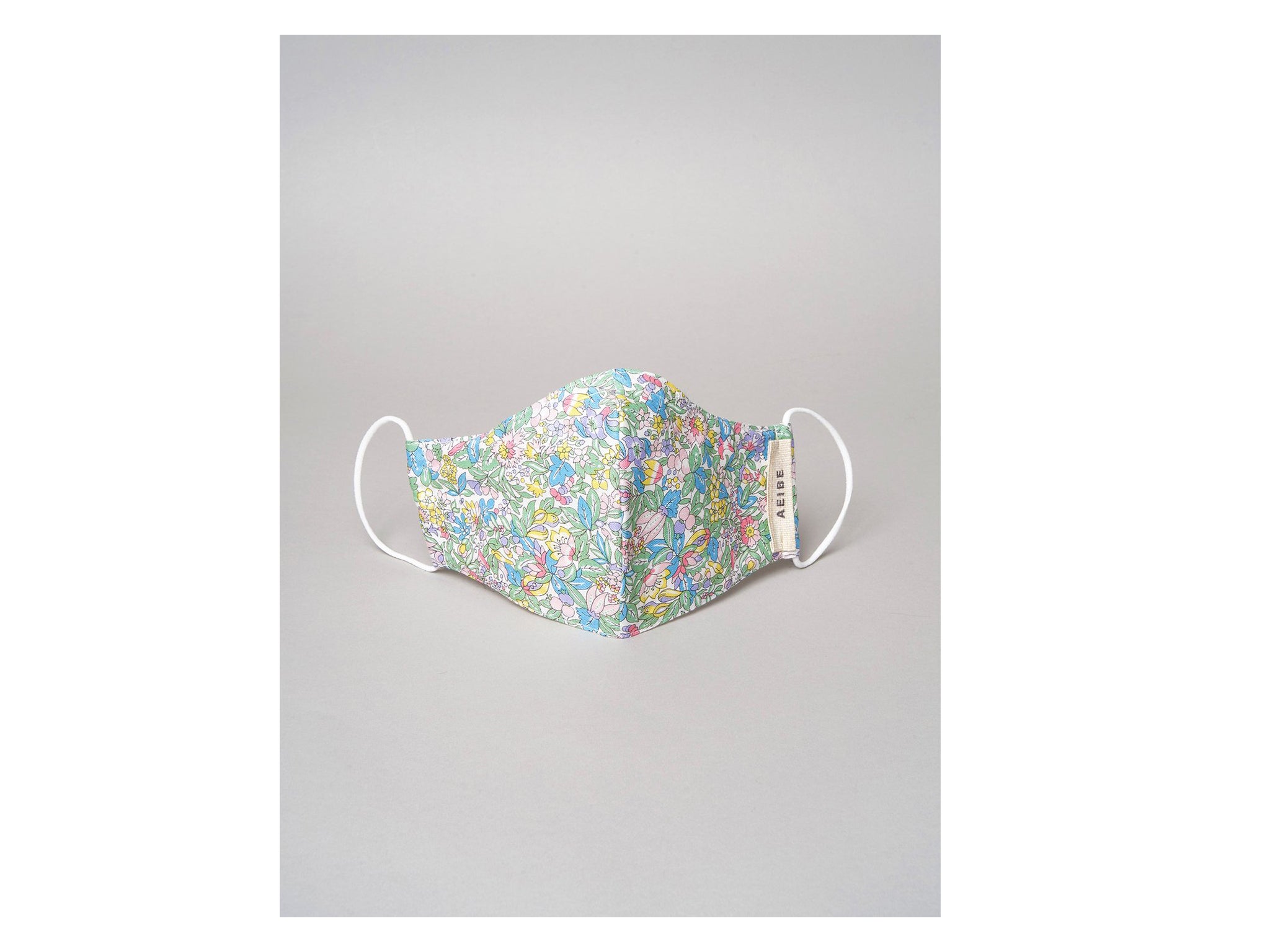
If you have a reusable cloth mask, Dr Sheraz advises washing it regularly, not only is it vital in protecting against the coronavirus but will also clear any oil, dirt or bacteria that could result in skin irritation or acne.
But how can you alter your skincare routine to reduce maskne? With the help of dermatologists, we've compiled the products and ingredients to use that will alleviate aggravated skin.
Cleansing
Dr Toni Phillips, group clinical director at Destination Skin, stresses the importance of cleansing properly to keep pesky spots at bay.
"It minimises congested skin and clogged pores, which can lead to inflammation, large pores, blackheads and a dull and uneven complexion. The right cleanser for your skin type will remove excess oil if present, gently exfoliate dead skin cells and debris, whilst leaving the skin barrier intact," she says.
If you have a combination-oily skin type, and therefore are often prone to acne, she recommends the SkinCeuticals blemish and age cleanser (£40, Lookfantastic.com), a lightweight gel formula that has exfoliating agents to decongest pores.

To apply, massage into a wet face and neck, morning and evening, then rinse with warm water and flannel.
If you like to wear make-up under your mask, experts recommend double-cleansing in the evenings to make sure your pores do not become clogged, which can exacerbate acne. If you don't remove make-up properly, it will also render any products you use afterwards less effective as they're required to be applied to a completely clean face in order to work.
This means using a balm or oil-based cleanser to remove make-up and SPF, followed by a lighter gel or milk cleanser to thoroughly cleanse the skin. The Clinique take the day off cleansing balm (£26, Johnlewis.com) is a great all-rounder.
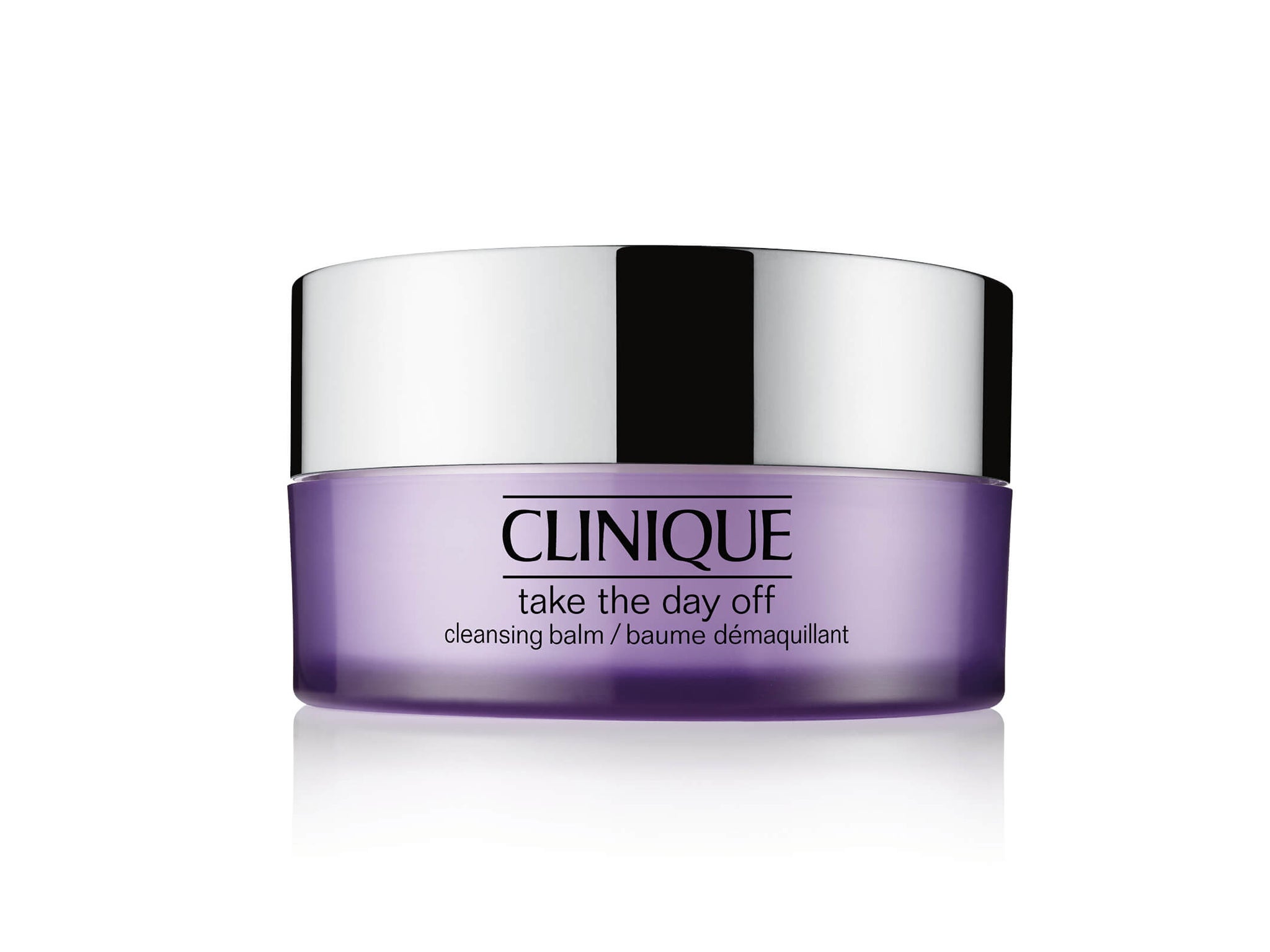
It’s fragrance-free (a known skin irritant) and once massaged onto a dry face, melts down all make-up, even the most stubborn of mascaras.
Spot treatment
For blemishes that won't budge, a targeted spot treatment can speed up the healing process, while reducing irritation and redness.
Look for ingredients lists that contain salicylic, glycolic and lactic acids, which exfoliate, dissolve gunk and grime and break down debris clogging pores, which cause spots.
We love the Typology salicylic acid serum (£19.90, Typology.com). The vegan, fragrance-free formula is fast-acting and within a few days of use, you will see a reduction in the size of your spots.

As it does specifically target blemishes, you only need to apply it to those areas, rather than your whole face.
Topping our guide to the best spot treatments was the Murad rapid relief spot treatment (£20, Lookfantastic.com), with our writer noting that the “fast-acting gel gave transformative results in hours”.
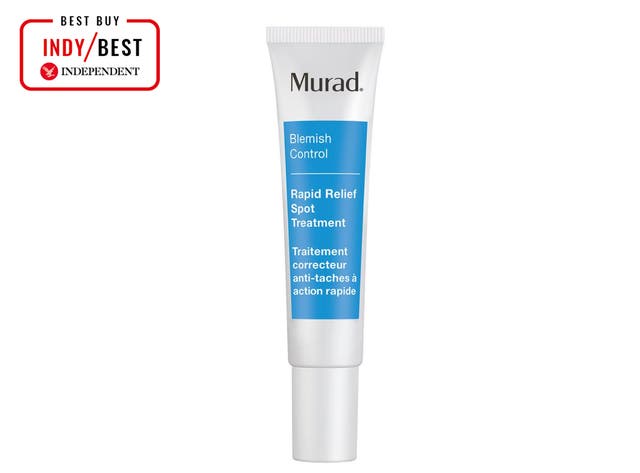
It’s “particularly effective when put on just before bed, as the salicylic acid, pine and thyme extract formula got to work at reducing redness, the size of a blemish and taking away the uncomfortable sting from inflamed skin”, they said.
Moisturise
As the last step in your skincare regimen, using moisturiser plays an important part in tackling maskne.
According to consultant dermatologist Dr Justine Hextall, a light moisturiser with hydrating ingredients such as glycerine and ceramides will help prevent irritation from your mask.
The La Roche-Posay effaclar duo (£17, Feelunique.com) is a gel-based moisturiser that took the top spot in our guide to the best moisturisers for combination skin.
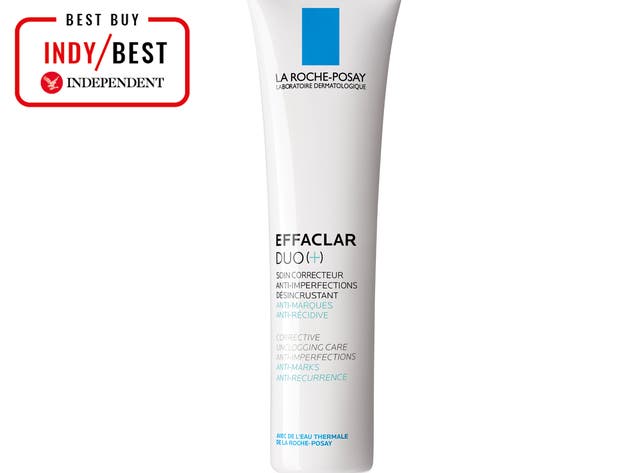
While it won’t clear up spots overnight (let’s face it, nothing will), it will reduce blemishes. Our reviewer noted that it unclogged their pores and “helped existing spots to heal, and ingredients like zinc controlled sebum while glycerin helped with hydration”.
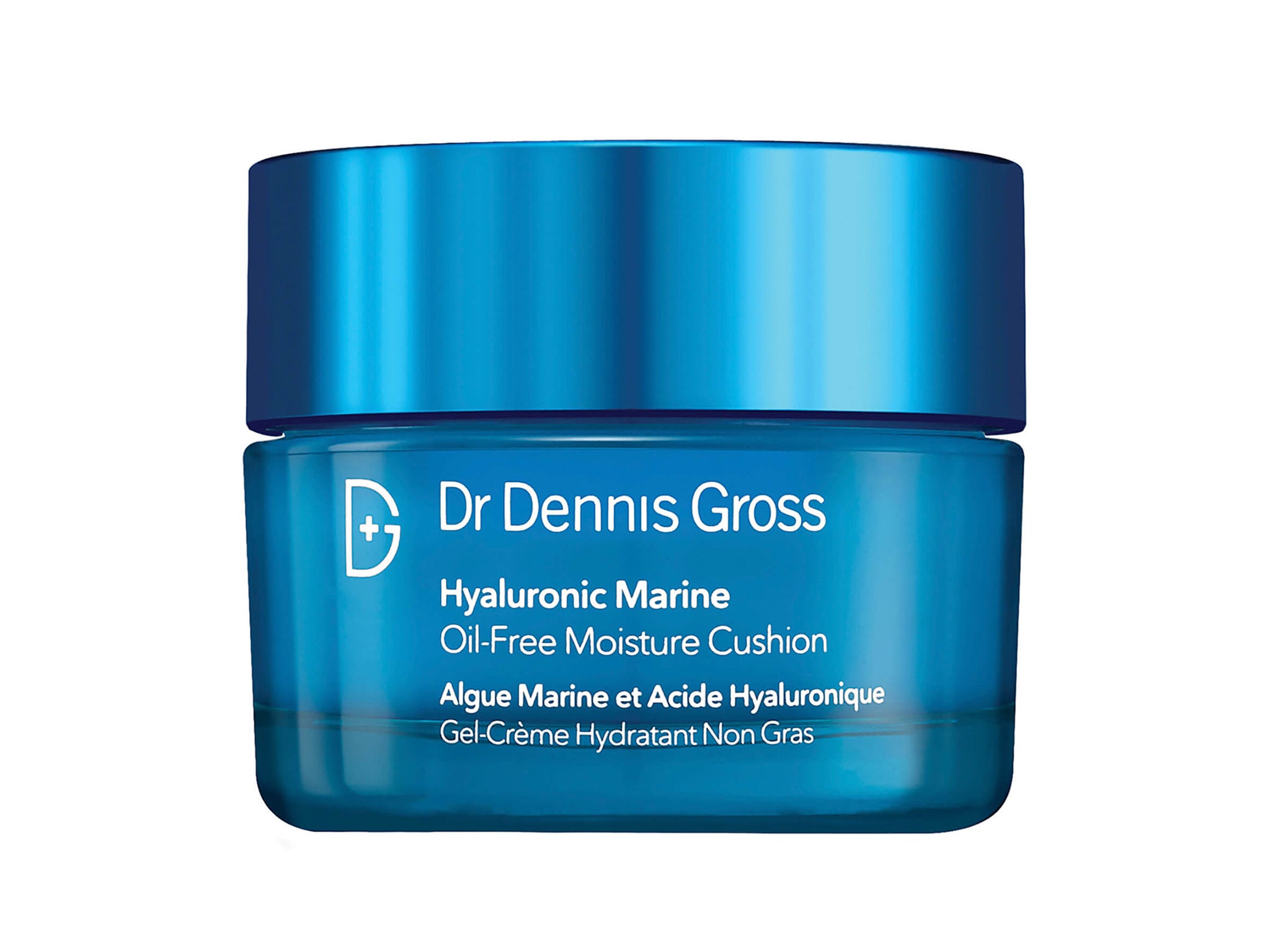
Alternatively, try Dr Dennis Gross skincare hyaluronic marine oil-free moisture cushion (£59, Lookfantastic.com), a lightweight gel texture in a hyaluronic-acid rich formula that will prevent water loss without leaving your skin feeling greasy or overloaded.
Oil-free formulas will work best for acne, as they minimise oil production, which can clog pores and increase breakouts and won't add extra shine.
Voucher codes
For the latest discounts on skincare, try the below links:
Looking for mask inspiration? Read our face covering buying guide